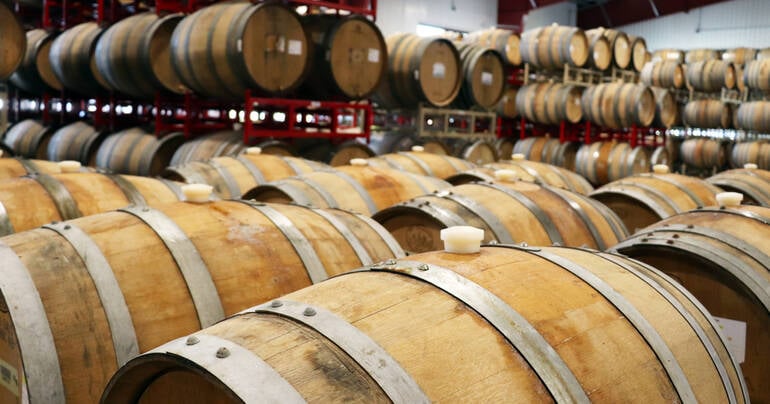Start 14-Day Trial Subscription
*No credit card required

17 Intriguing Wine Barrel-Aged Beers
Barrel-aging is nothing new for brewers, and it’s no secret why. That time spent in a barrel adds such complexity and flavor to a beer that is impossible to achieve it any other way. And while whiskey or bourbon barrels tend to dominate, aging a beer in barrels formerly home to wine gives a beer a whole new dimension. These 17 intriguing wine barrel-aged beers illustrate that perfectly.
“First and foremost, these beers offer a complexity that only the barrel-aging process can provide,” says Mike Siegel, Barrels and Beyond Beer Innovations Manager at Goose Island Beer Co. “The combination of beer, fruit, yeasts, lactic acid bacteria and oak, with the right amount of time in wood, provide a flavor profile that can’t be achieved any other way, just like a fine wine.” The success of Goose Island’s Bourbon County Stout led to a drive for more creativity and pushing boundaries resulting in aging and fermenting in wine barrels and foudres for various beers.
Sean Sasscer, Brewer Manager at Cigar City Brewing, approaches aging beer in wine barrels differently than bourbon barrels. "With wine barrel-aging, you have to consider tannins much more so than with whiskey barrels. Knowing the wine, its age and its varietal will guide what kind of beer is appropriate for that barrel," he says.
Aging in bourbon barrels could be a little more predictable, says John Olson, Product Development and Innovation Lead at Avery Brewing. “With bourbon barrels we feel like we know what we're going to get,” he says. He adds that certainly there are some slight differences between different bourbons, but he finds that with high-ABV beers that are generally adjuncted with some sort of fruit or spice, they get a "general bourbon character”…”which is awesome, he says, but not so much ‘ooh that's Woodford, or Heaven Hill.’"
“With wine, not that we can name the exact producer or varietal, we just feel we get some more nuanced characteristics that really do change depending on where the barrels are coming from, how wet they are, and so on,” Olson says.
The style of wine has a huge impact on the beer, he adds. “The wine barrels can lend sweetness, acidity, aromatics, color, and loads of complexity to these beers. I would love to say that we're always spot on with what we envisioned for the project, but we're often surprised with what actually comes through in the beer. I think that's the best part sometimes – being completely surprised with the finished product.”
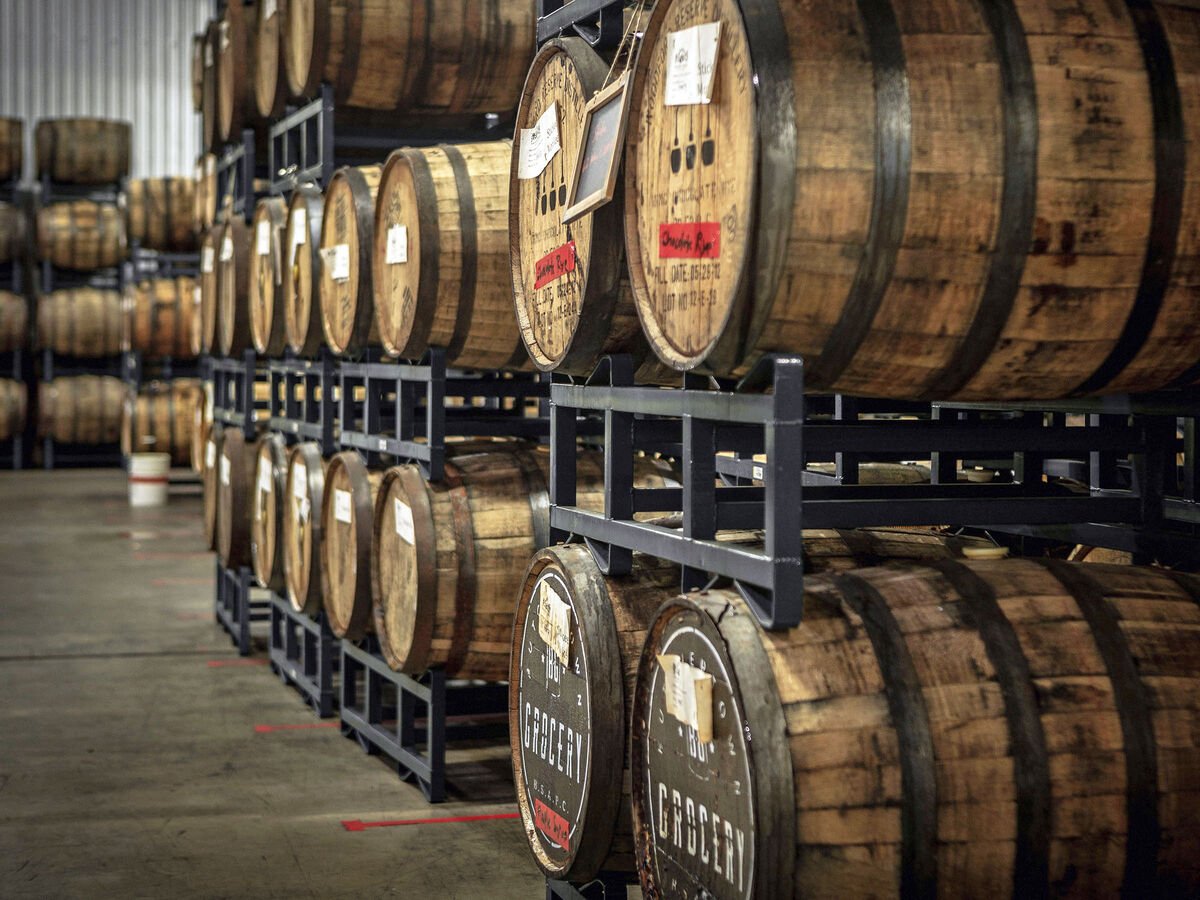
“The wine barrels can lend sweetness, acidity, aromatics, color, and loads of complexity to these beers. I would love to say that we're always spot on with what we envisioned for the project, but we're often surprised with what actually comes through in the beer. I think that's the best part sometimes – being completely surprised with the finished product," says John Olson of Avery Brewing Co.
Russian River Brewing Co.’s Supplication, for example, is aged in Pinot Noir barrels, which offer a more subtle contribution compared to their Consecration, which is aged in impactful Cabernet Sauvignon barrels, explains Vinnie Cilurzo, Owner and Brewer. Cilurzo says that over time, the flavor that a barrel can impart will diminish after each use.
“By the fourth use there is no wine flavor contribution to the beer. The barrels themselves typically are 3 to 5 years old when we receive them so in most cases there is a subtle oak contribution to the finished beer, which is what we want.” This is why, he adds, in a perfect world they use a mix of 1st use, 2nd use, and 3rd use barrels for a batch of Supplication.
Nick Ison, Lead in the Barrel Aging Program and Innovation Brewers, at Sierra Nevada Brewing Co. says their approach in choosing barrels to use is to treat them like an ingredient. “Imagining the influence that the oak structure of the barrel as well as that barrel’s previous resident will have. For example, for aging Otra Vez, a delicate light-bodied slightly citrus sour ale, they opted for chardonnay barrels. “This paring imparted a more subtle oaky, tannic slightly cidery note to the beer,” he says.
While the great majority of barrels used in Sierra Nevada’s barrel program are spirit barrels, they do also enjoy taking advantage of the proximity to northern California’s wine-producing regions. “Being able to work with the wine makers has been a great experience for us, not only to source barrels but to learn aspects of their craft from them and how that might influence the impact of their barrels on the beer we age in them,” Ison says.
Great Divide Brewing Co. launched a Wood Werks Barrel series, featuring beers aged in wood. The first beer in the line was a Belgian-style Tripel soured for 15 months in red wine barrels and aged on plums. The second release was a Flemish-style brown ale with strawberries aged for 12 months in red wine, whiskey and bourbon barrels and then blended. Another release was a Saison with spelt and rye added to the mash and then aged in Cabernet Sauvignon barrels.
It’s clear that brewers are continuing to explore the world of wine-barrel aging and push limits. Here are some examples of well-made wine-barrel aged beers:
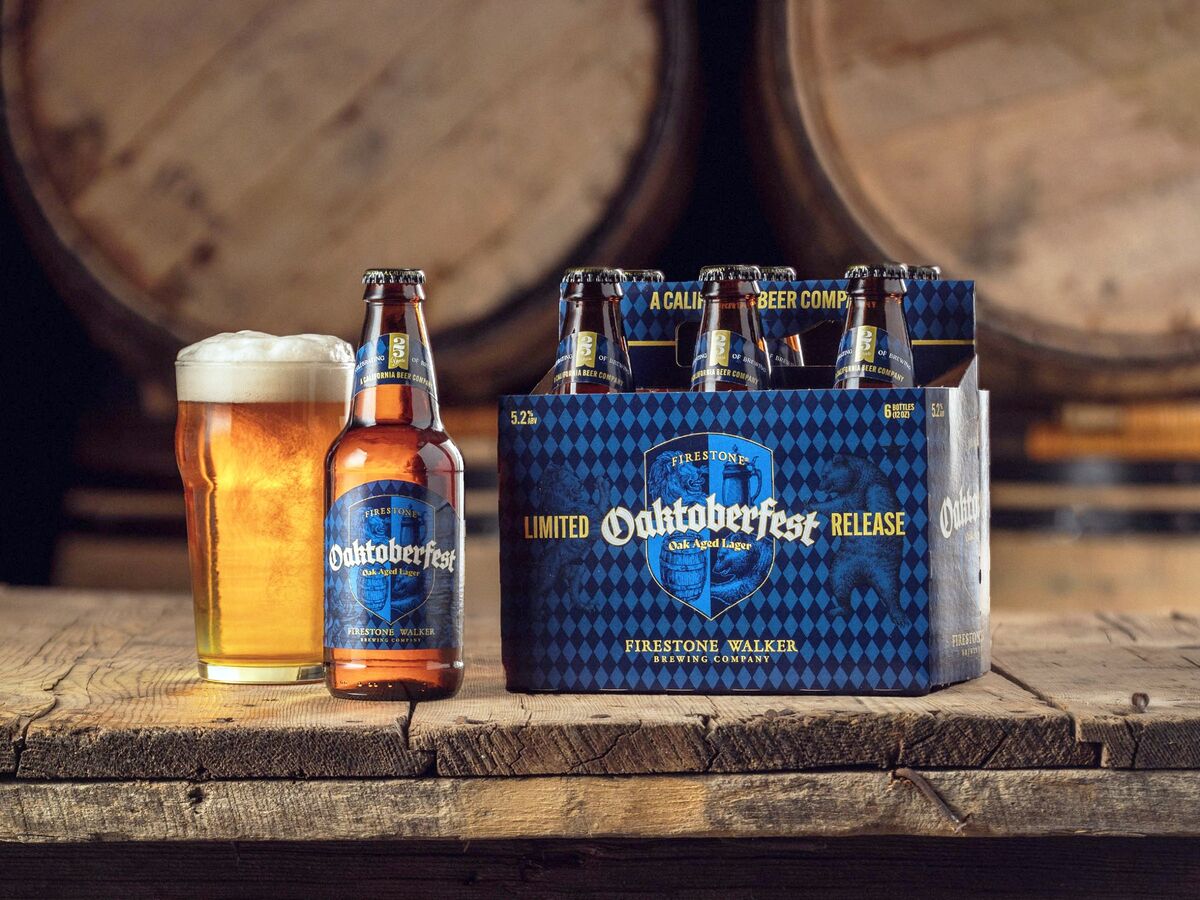
Oaktoberfest
Firestone Walker Brewing Co.
This seasonal release is inspired by Oktoberfest, but with a twist by incorporating wine barrels into the process. The biscuity brew, available in 6-packs, is lagered in French oak barrels that once housed Cabernet wine, which was produced in California’s famous Napa Valley wine region. Brewmaster Matt Brynildson says that lagering in the oak wine barrels instead of stainless brings a distinct smooth, integrated character into the beer.
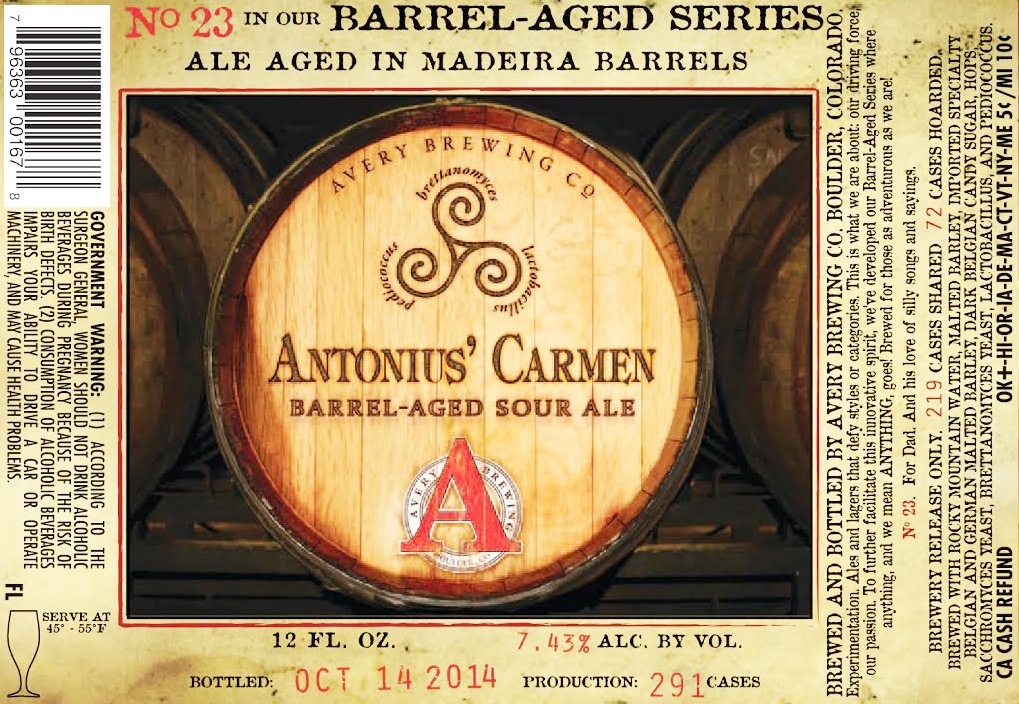
Antonius’ Carmen
Avery Brewing Co.
Antonius’ Carmen is a sour ale aged in 100% Madeira barrels – a fortified wine originating from a small Portuguese island in the Atlantic Ocean. This well-made, balanced beer is just one of the many creative, thoughtful beers influenced by wine barrels at Avery Brewing. Rufus Corvus was aged in a mix of Cabernet Sauvignon, Chardonnay, and Zinfindel barrels. Ross’s’s Melange was brewed with Chardonnay grape must and aged in Chardonnay barrels. Volunt Plus Erat was brewed with Cabernet Franc Must and aged in Zinfandel barrels.
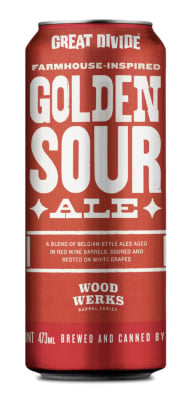
Golden Sour Ale
Great Divide Brewing Co.
Golden Sour Ale was possibly the most complex Wood Werks release to date, says Matt Sandy, Marketing Manager at Great Divide Brewing Co. Three different Belgian-inspired Great Divide beers were aged individually in Pinot Noir barrels for more than a year and then spiked with a blend of souring agents. Those beers were then blended and left to rest on a bed of white grapes. “The end result is golden in hue and pleasantly sour with a rich, fruity bouquet of melon, grape, pear and apricot,” Sandy adds.
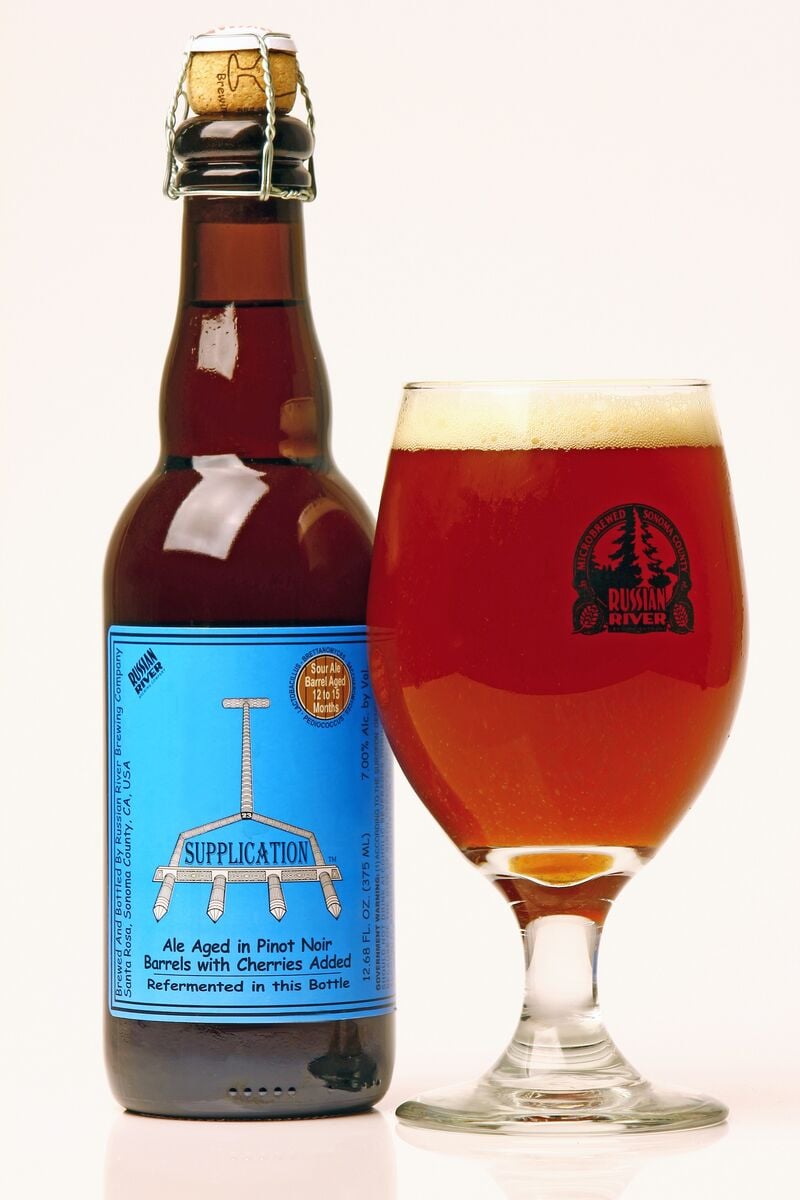
Supplication
Russian River Brewing Co.
The Pinot Noir barrels used in aging Supplication mostly come from DuMol, a close-by vineyard primarily focusing on cool-climate Pinot Noirs and Chardonnays. When Russian River Owner and Brewer Vinnie Cilurzo was designing the recipe, he kept in mind how the Pinot Noir would intersect with the malts used, dried tart cherries and Brettanomyces yeast.
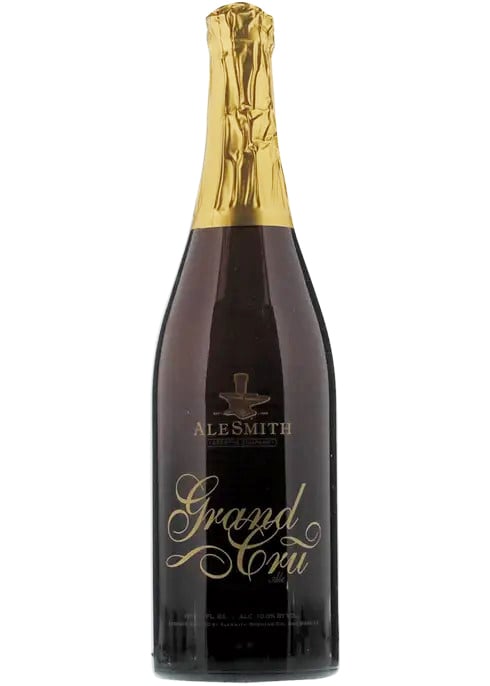
Grand Cru
AleSmith Brewing Co.
When aging this Belgian-style ale, California red wine barrels from the Central coast are the go-to. “A number of red wine varietals work well but we usually prefer the ones that are darker with big fruity flavor,” says Ryan Crisp, Director of Brewing Operations. A blend of barrels that aged different wines are often used. “The barrels give the beer notes of oak, dark fruit and berries, such as plums, raspberries and raisins, as well as a pleasant tannic finish,” he adds.
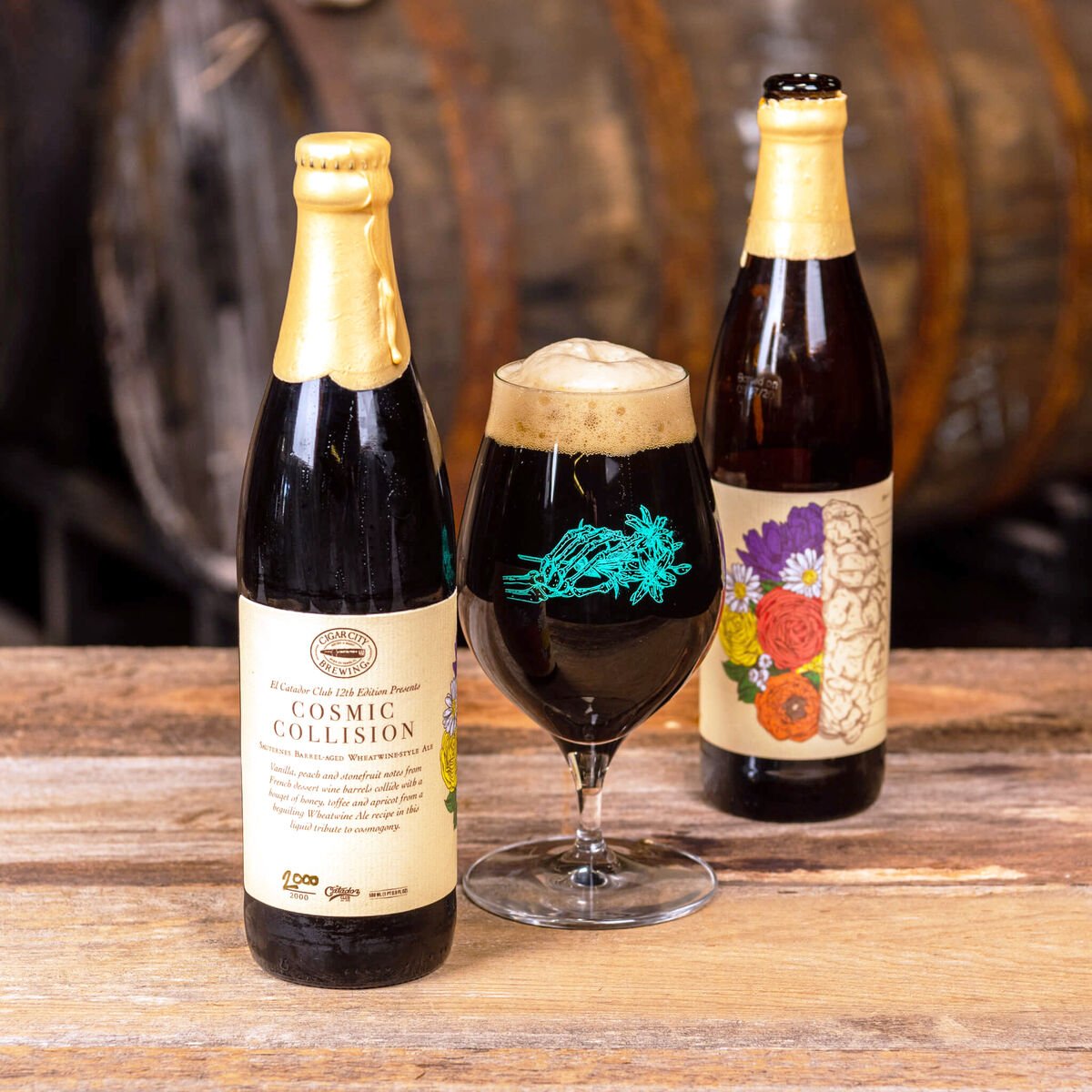
Cosmic Collision
Cigar City Brewing
The vanilla, peach, and stone fruit notes in Cosmic Collision come from its time spent in Sauternes barrels – a sweet French dessert wine from the Bordeaux region. These flavors compliment the honey, toffee and apricot flavors from the Wheatwine base. The end result is a complex beer with a mix of molasses, muscat grapes, orange marmalade, candied apple, alcohol spice, and wood tannins with notes of oak, dark cherry and honey.
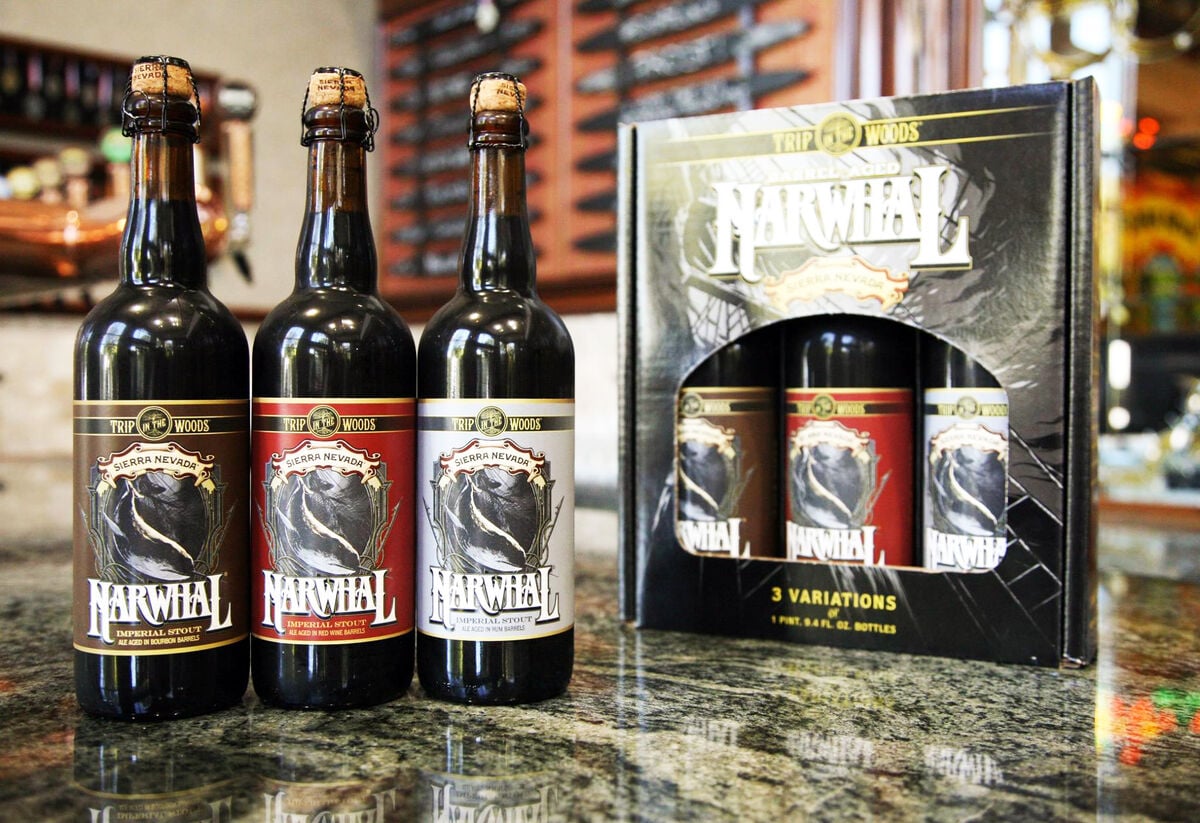
Trip In The Woods: Narwhal
Sierra Nevada Brewing Co.
For making an impact on a big wine barrel-aged Imperial Stout like Trip in the Woods: Narwhal, Sierra Nevada brewers turned to aging in a barrel that housed an equally bold wine. “For this we chose to age it in red wine barrels, mostly Cabernet, because we thought the big fruit-forward wine character from those barrels would hold up to and complement the big roasty, chocolaty flavor from the Narwhal,” says Ison.
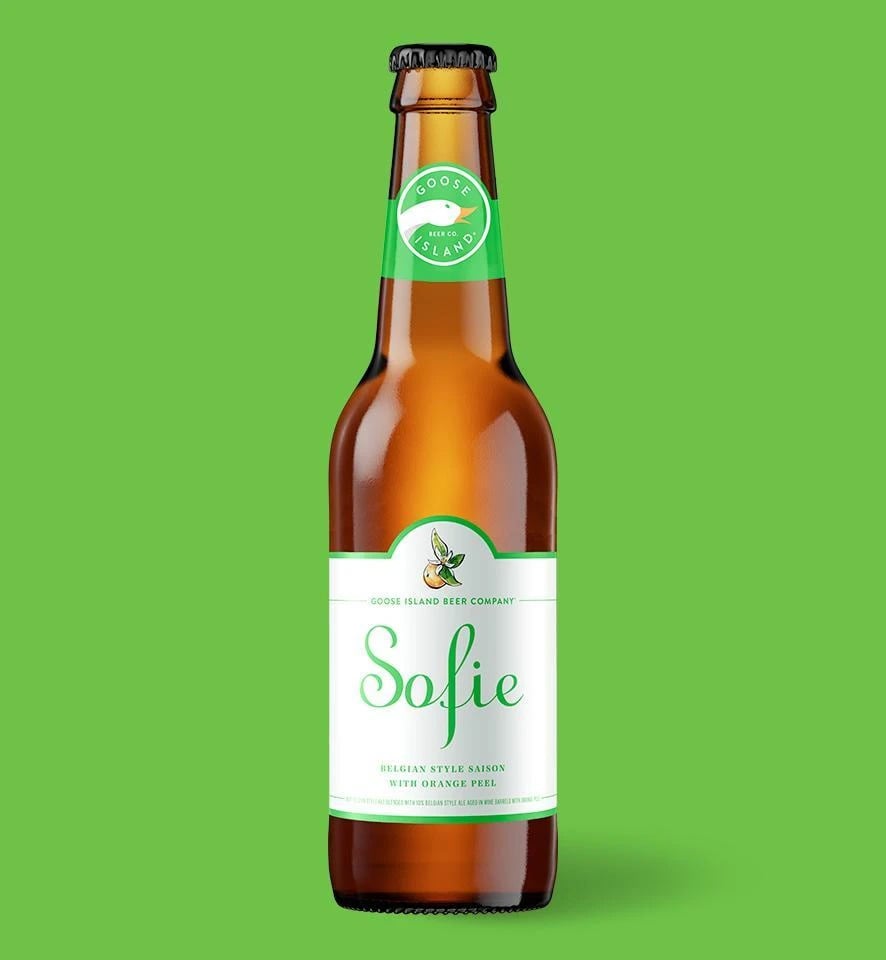
Sofie
Goose Island Beer Co.
A portion of the sparkling Belgian-Style Saison is wine barrel-aged along with an abundance of hand-zested orange peel then blended with fresh beer for a balanced flavor. The end result is a light and effervescent brew with citrus tartness contrasted with spicy white pepper notes. “The light, refreshing, creamy vanilla finish will excite those fond of Champagne,” Siegel says.
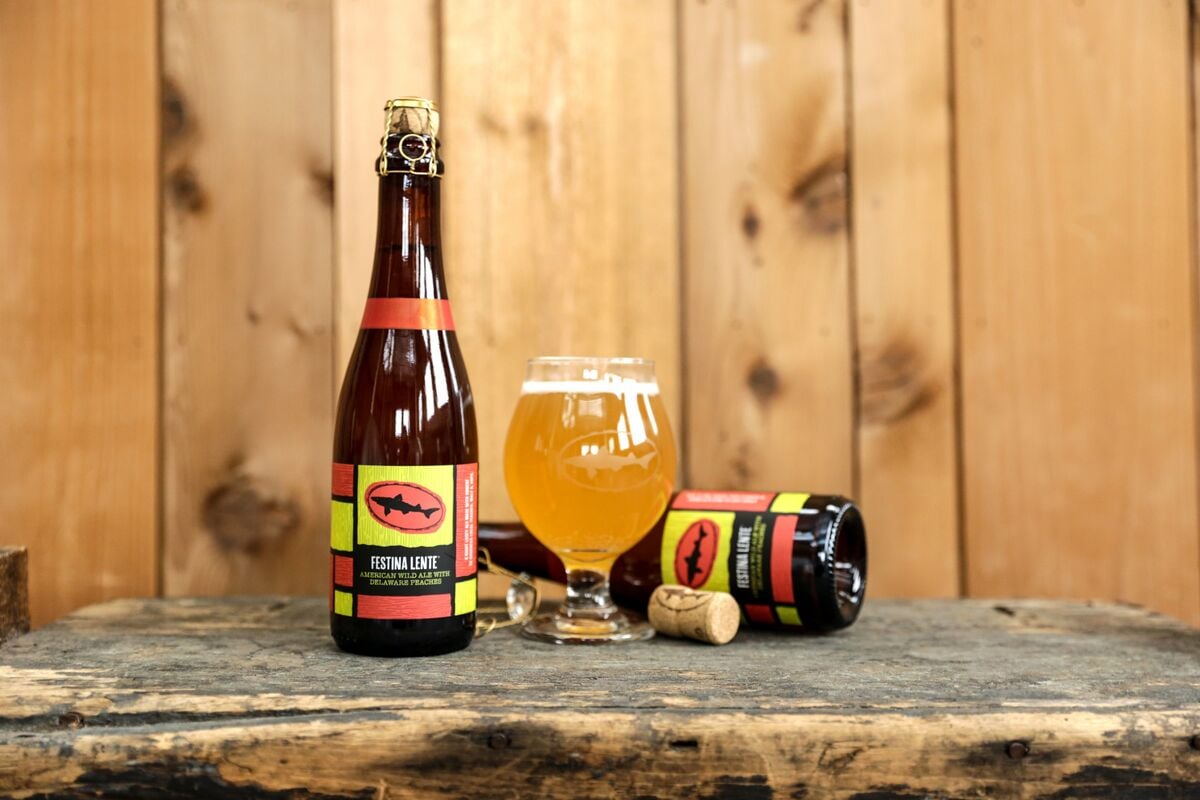
“Wooden…It Be Nice!” Series
Dogfish Head Craft Brewery
The “Wooden…It Be Nice!” wild beer program at Dogfish Head features limited-release beers, many of which are aged in wine barrels (such as Festina Lente above). Wet Hop American Summer was a Farmhouse ale aged more than a year in Chardonnay barrels, and That Rightness was a dark brown wild ale aged in Ruby Port barrels for 2 years. There were several other beers aged in French oak barrels and even beers aged in both red and white wine barrels.
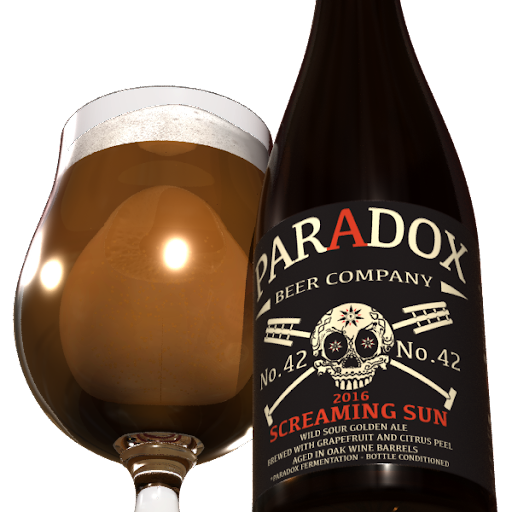
Screaming Sun
Paradox Beer Co.
Paradox Brewing’s beers patiently age in barrels for a minimum of four months and up to several years. Screaming Sun is a Wild Sour Golden Ale brewed with grapefruit and citrus peel and then aged in oak wine barrels. “A sprinkle of sugar, a dash of salt, and the light kiss of a brûlée torch elevates morning grapefruit halves to new heights of flavor complexity.”
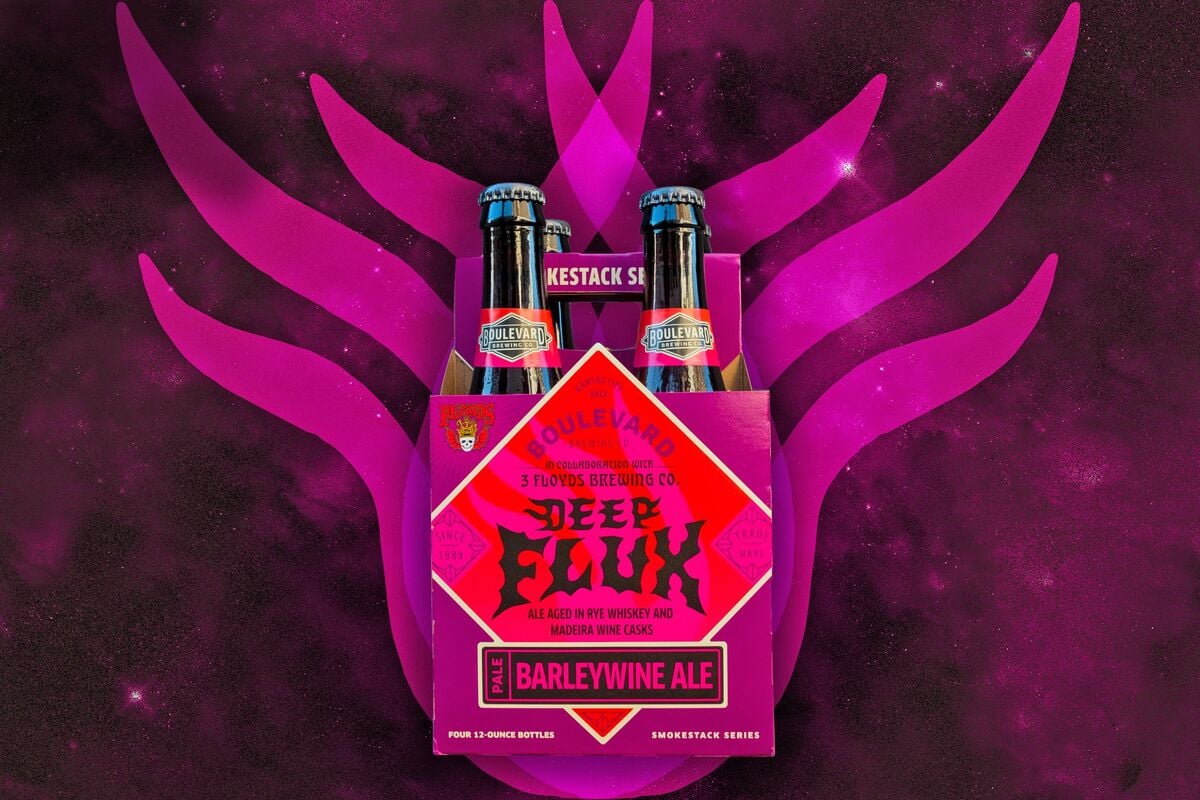
Deep Flux Pale Barleywine
Boulevard Brewing Co.
Deep Flux Pale Barleywine combines aging in both whiskey and wine barrels. The malty beer, which spent 100% of the process in barrels, is divided – 60% in rye whiskey barrels and 40% in Madeira wine casks. The final product for this high-alcohol beer is a “big and boisterous barleywine with resplendent flavors of rye, Madeira and oak lurking in the barrels.”
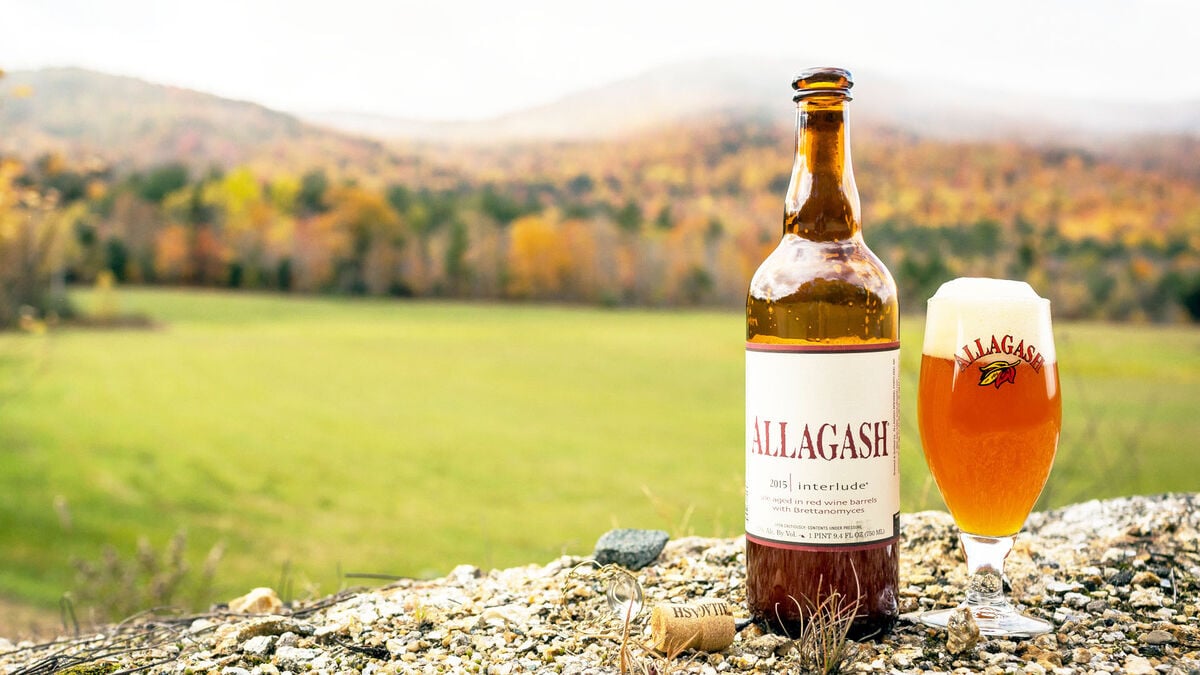
Interlude
Allagash Brewing Co.
A portion of this Belgian-style ale is aged in red wine barrels, which lend to a plum character with an “almost tannic” finish. This Great American Beer Festival award- winning brew is also brewed with two different yeast strains – a Saison yeast and their house strain of Brettanomyces yeast.
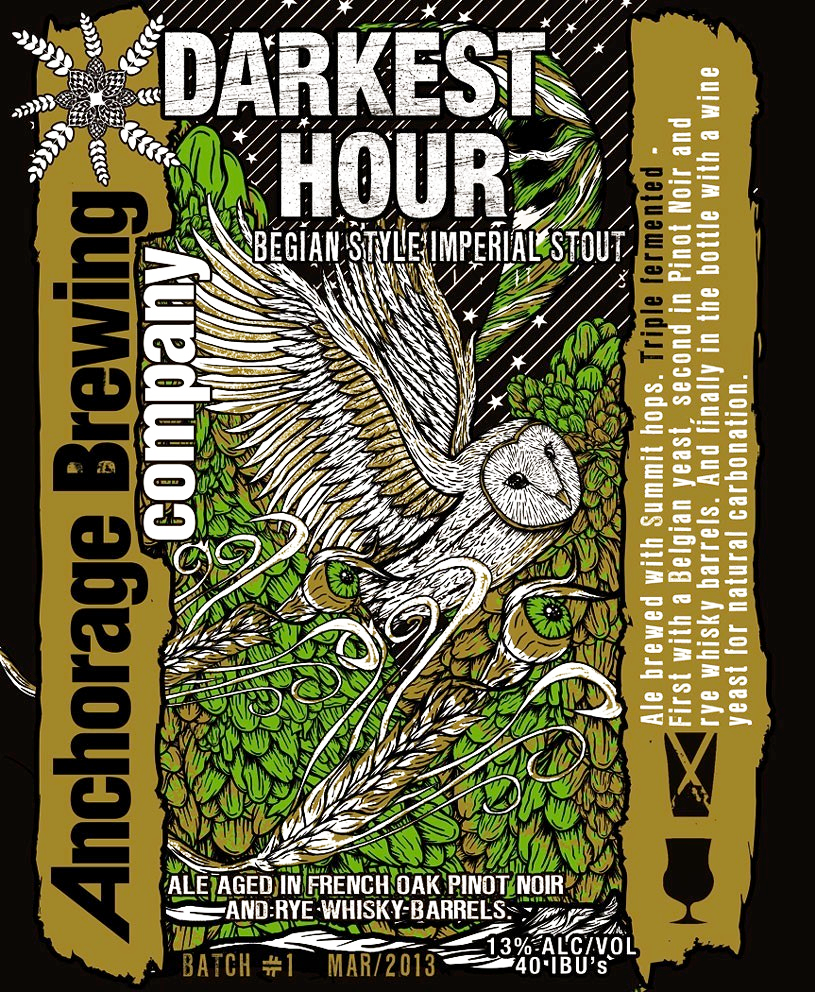
Darkest Hour
Anchorage Brewing Co.
Anchorage’s Darkest Hour spent time in both wine and spirit barrels. This Imperial stout, brewed with Belgian yeast and Summit hops, was aged in both French Oak Pinot Noir barrels and Rye Whiskey barrels for two years.
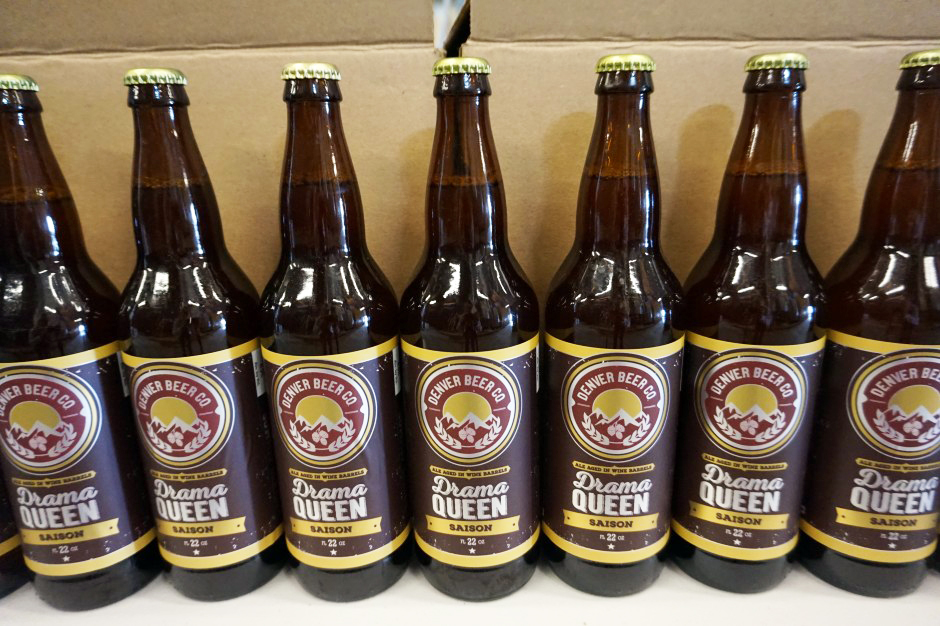
Drama Queen
Denver Beer Co.
This wine-barrel aged Saison took home a Gold Medal in the Wood and Barrel Aged Beer Category at the Great American Beer Festival. “Anytime you put a beer in a barrel, especially a used wine barrel, you don’t know what’s going to happen. That’s the fun of it,” said Head Brewer Jason Buehler on Denver Beer Co’s blog. The base beer aged five months in a mix of French Cabernet, Merlot and Malbec oak barrels.
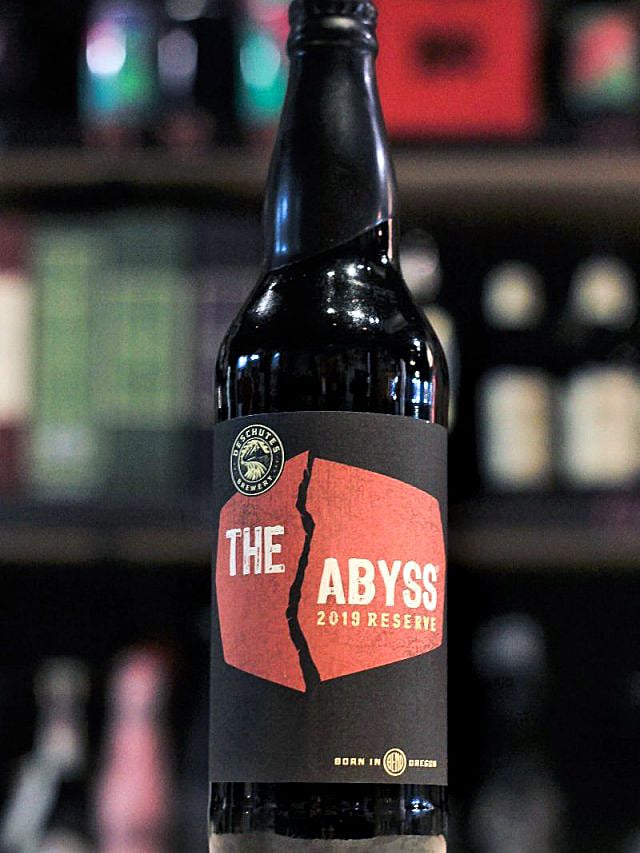
The Abyss Port
Deschutes Brewery
The Imperial Stout was aged in 100% Port wine barrels – a sweet red fortified wine from Portugal, commonly considered a dessert wine. The beer is also brewed with black strap molasses, licorice, cherry bark and whole vanilla beans.
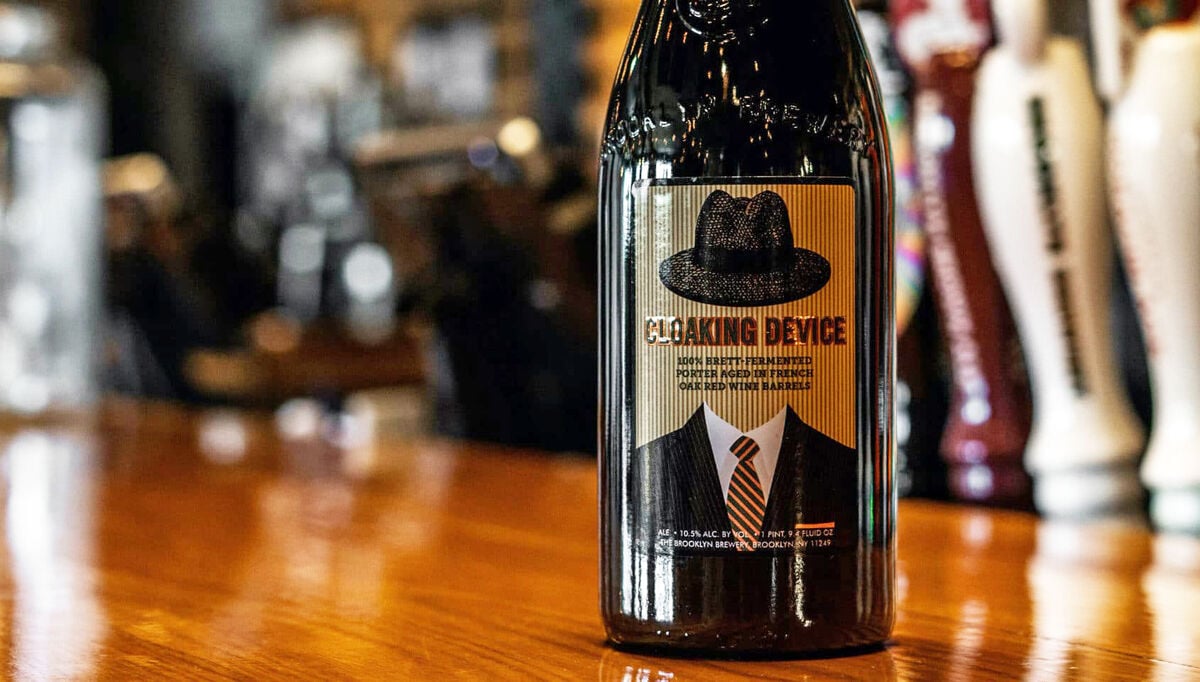
Cloaking Device
Brooklyn Brewery
For aging this strong Brett-fermented porter, brewers opted to age in French oak red wine barrels for nine months. This limited release beer has notes that are “earthy with hints of vanilla and cacao fruit.”
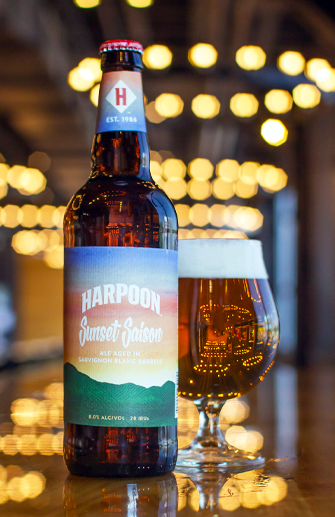
Sunset Saison
Harpoon Brewery
The golden straw-colored Saison gets a slightly tart and mild sweetness from the time it aged in Sauvignon Blanc barrels. The beer has a taste of peach, orange peel, sourdough and Belgian spice.



